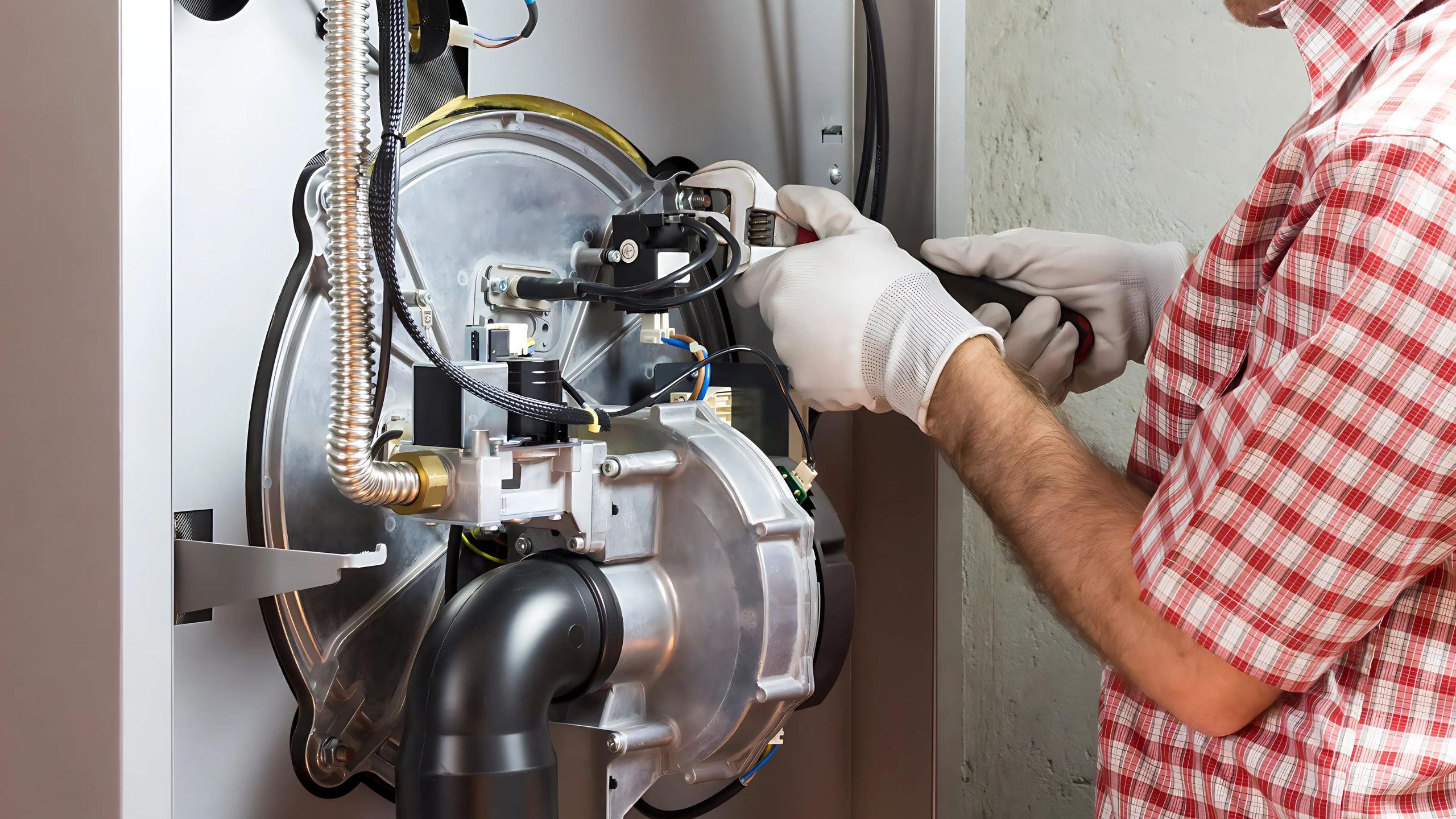
Proper maintenance of commercial boilers is essential for ensuring reliable operation, energy efficiency, and safety. Regular maintenance can extend the lifespan of your boiler, reduce operating costs, and prevent unexpected breakdowns. This guide outlines the key components of a comprehensive boiler maintenance plan and offers practical tips for keeping your system in optimal condition.
Why Boiler Maintenance Is Important
1. Enhanced Efficiency
Routine maintenance helps ensure that your boiler operates at peak efficiency, reducing energy consumption and lowering utility bills. A well-maintained boiler can save a significant amount of energy compared to one that is neglected.
2. Preventing Costly Repairs
Regular inspections and maintenance can identify potential issues before they lead to costly repairs or complete system failure. By addressing minor problems early, you can avoid more expensive repairs and extended downtime.
3. Safety Considerations
Boilers operate under high pressure and temperatures, making safety a critical concern. Maintenance tasks such as checking safety valves, inspecting pressure relief mechanisms, and testing controls can prevent accidents and ensure the safety of your facility.
4. Prolonging Equipment Lifespan
A properly maintained boiler will have a longer operational life. Routine maintenance minimizes wear and tear on components, reducing the likelihood of premature failure and extending the time between replacements.
Key Components of a Boiler Maintenance Plan
1. Daily and Weekly Checks
Performing daily and weekly checks is the first line of defense in maintaining your boiler system.
- Monitor Pressure and Temperature:Check the boiler’s pressure and temperature gauges to ensure they are within the recommended range.
- Inspect Water Levels:Maintain proper water levels to prevent damage to the boiler and ensure efficient operation.
- Check for Leaks:Regularly inspect the boiler and surrounding piping for signs of leaks, which can lead to water damage and efficiency loss.
- Listen for Unusual Noises:Unusual noises, such as banging or hissing, may indicate underlying issues that require attention.
2. Monthly and Quarterly Inspections
In addition to daily checks, more detailed inspections should be conducted on a monthly and quarterly basis.
- Inspect Burner and Flame:Ensure that the burner is clean and the flame is burning steadily. Irregular flames may indicate a problem with the fuel supply or combustion process.
- Test Safety Devices:Regularly test safety devices, such as pressure relief valves and low-water cutoffs, to ensure they are functioning properly.
- Examine Electrical Connections:Inspect all electrical connections for signs of wear, corrosion, or loose wires, and ensure proper grounding.
3. Annual Maintenance Tasks
Annual maintenance should be more comprehensive and typically involves professional inspection and servicing.
- Full System Inspection:Have a qualified technician conduct a thorough inspection of the entire boiler system, including the burner, controls, pumps, and piping.
- Cleaning the Heat Exchanger:Over time, soot and debris can accumulate on the heat exchanger, reducing efficiency. An annual cleaning ensures optimal heat transfer and efficiency.
- Combustion Analysis:A combustion analysis can help optimize fuel usage and ensure the boiler is burning fuel efficiently, reducing emissions and costs.
- Check Ventilation and Exhaust Systems:Ensure that ventilation and exhaust systems are free of obstructions and functioning properly to prevent dangerous carbon monoxide buildup.
4. Water Treatment
Proper water treatment is a crucial aspect of boiler maintenance, particularly in systems that use steam or hot water.
- Monitor Water Quality:Regularly test water quality for pH levels, hardness, and chemical composition. Poor water quality can lead to scaling, corrosion, and reduced efficiency.
- Treat Boiler Water:Use appropriate water treatment chemicals to prevent scaling and corrosion within the boiler and associated piping.
- Blowdown Procedures:Regularly perform blowdown procedures to remove sediment and impurities from the boiler, which can accumulate and cause damage over time.
Best Practices for Boiler Maintenance
1. Develop a Maintenance Schedule
Create a detailed maintenance schedule that outlines specific tasks and their frequency. Assign responsibility to qualified personnel and ensure that all tasks are documented for future reference.
2. Train Staff
Ensure that all staff members responsible for boiler operation and maintenance are properly trained. This includes understanding how to perform routine checks, recognizing signs of potential issues, and knowing when to call for professional assistance.
3. Keep Detailed Records
Maintain detailed records of all maintenance activities, inspections, and repairs. This documentation can help track the system’s performance over time and provide valuable information for future maintenance planning.
4. Work with Qualified Professionals
While some maintenance tasks can be performed in-house, others require the expertise of a qualified technician. Regular professional inspections and servicing are essential for ensuring the long-term reliability and efficiency of your boiler system.
5. Plan for Replacement
Even with proper maintenance, boilers have a finite lifespan. Keep track of your system’s age and condition, and plan for replacement when the time comes. Early planning can help avoid unexpected failures and ensure a smooth transition to a new system.
Conclusion
Regular maintenance is essential for the safe, efficient, and reliable operation of commercial boilers. By implementing a comprehensive maintenance plan that includes daily checks, routine inspections, water treatment, and professional servicing, you can extend the life of your boiler, reduce operating costs, and prevent unexpected breakdowns. Prioritizing maintenance not only ensures the safety and comfort of your facility but also provides peace of mind that your system is running at its best.